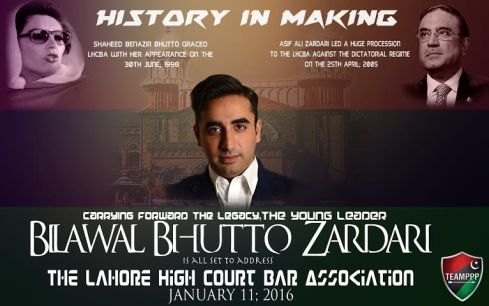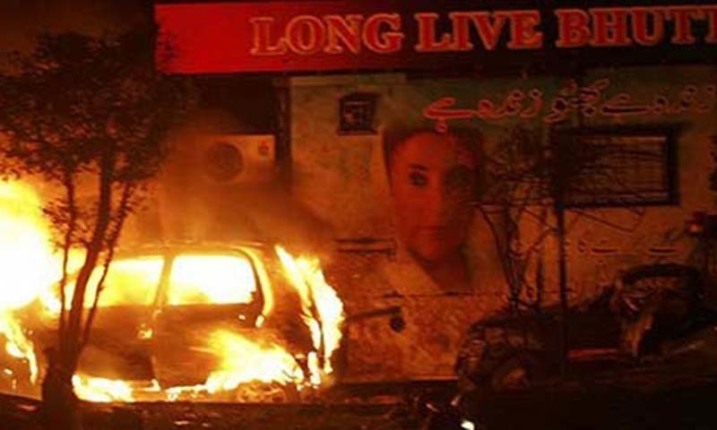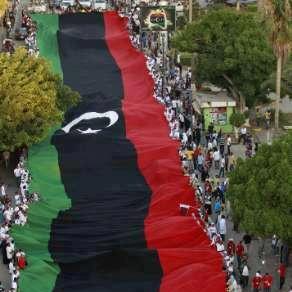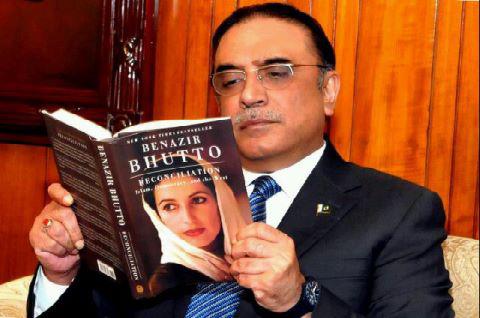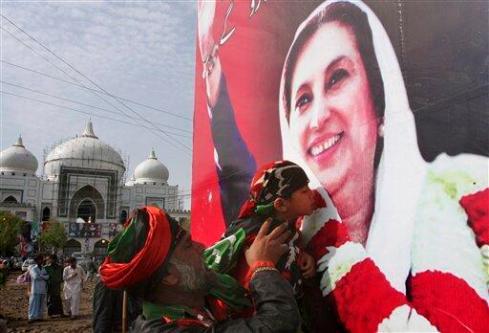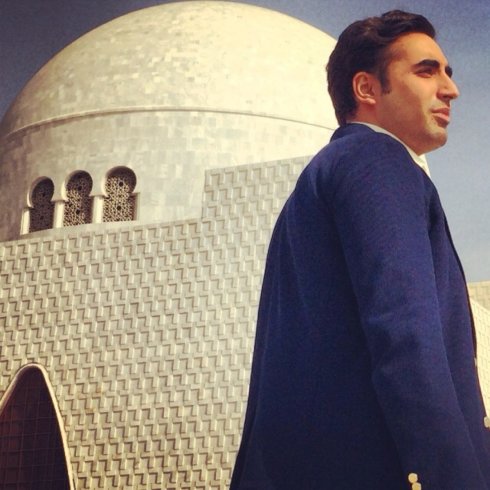 There are two of Sharif’s maneuvers that terribly backfire when nature pulls a Nawaz Sharif on him. One is his opposition to abolish articles 62 & 63 during the preparation of 18th amendment, and the other is his refusal to Opposition’s demand for the Parliament to investigate the Panama scandal – to which he turned oblivious because the mighty Nawaz Sharif was too big to be investigated by a small Parliament representative of the common people.
There are two of Sharif’s maneuvers that terribly backfire when nature pulls a Nawaz Sharif on him. One is his opposition to abolish articles 62 & 63 during the preparation of 18th amendment, and the other is his refusal to Opposition’s demand for the Parliament to investigate the Panama scandal – to which he turned oblivious because the mighty Nawaz Sharif was too big to be investigated by a small Parliament representative of the common people.
However, right after the ouster, Nawaz Sharif makes a volte-face and suddenly turns into a democrat.
As soon as any court decision against Sharif comes out, social media is abuzz with PMLN sympathizers engaging into debates to persuade the supporters of democracy into siding with Nawaz Sharif, adjudging it comme il faut, against what they perceive as an insult to vote. Forget the past; move on; take the principled stance – they shout loud. At times, they altercate with abuse and slangs which in itself is at odds with the very essence of the democracy they press for.
Even if one has to sympathize with Sharif for that matter, on what grounds should we? Is Nawaz Sharif’s tirade against state institutions forsooth a battle for democracy?
Though the PMLN mandate continues to sail through the constitutional tenure, Nawaz Sharif goes into the electoral campaign as a man-at-arms, doing an impression of a rebel-like opposition leader. He laments that had he remained in government, things would be different – as if currently, it’s the aliens ruling in his name who ousted his entire party and usurped his mandate.
He speaks of regaining the lost respect for democracy, restoring the supremacy of Parliament, and of sanctity of the people’s vote.
But all that is in self-contradiction.
The Nawaz Sharif a day before the disqualification and a day after, are two repugnant extremes. Was it not a democracy when he put on a black coat, proudly marched towards the Supreme Court that now he is ultra-critical of, to get an elected PM disqualified on his petition? Was it not a democracy when he resorted to political victimization of the political rivals right after assuming the office in 2013? Or when the Paladin refused to meet the leader of the biggest opposition party to ‘please’ he knows who?
Lest we forget that the Prime Minister Nawaz Sharif hardly attended any sessions of the same Parliament he wants to be defended in the name of. Was Parliament not being undermined when he would avoid taking it in confidence even on the major national security issues ending up in a diplomatic fiasco? Or when he would lie while standing at the most sacred of the state institutions re money trail? Such is the respect for the Parliament that at one point, opposition senators had to lodge protests to compel the democratic PM to fulfill his constitutional obligation of attending Senate session, whilst many of the parliament sessions would be adjourned owing to the lack of quorum. And the Chairman Senate still has to protest the grave delinquency that PMLN ministers evince even after having ‘turned democrats’.
And oh, then comes the sanctity of vote!
Let’s not go into the Nawaz frenetic days when he would assist Osama Bin Laden to topple a democratic government, run maliciously misogynist campaigns against the first elected Woman Prime Minister of the Muslim world, influence courts to give maximum punishments to his political rivals, or would escape to Jeddah compromising with a dictator – all for the sanctity of vote, of course. But they say, forget the past.
So as of recent days under the brave democrat, where did the respect of vote go when the funds of the smaller provinces were diverted to Punjab, and South Punjab’s to specifically Lahore? PMLN government still turns its back on the smaller provinces that are compelled to survive on the 7th NFC award of 2009. Federal government is also reluctant to disseminate funds under Public Sector Development Program that recently drew ire of the Chief Minister of Sindh, but the cries fell on deaf ears.
The vote power is to Nawaz Sharif’s perquisite only through which the person-specific legislation is done. 18th amendment, a watershed in the constitutional history of Pakistan, was used by him only to pave way to the third-time premiership. He had reneged on the other critical desiderata like invalidating the PCO judges and the establishment of the Federal Constitutional Court to resolve constitutional issues as assented in the Charter of Democracy.
But for the time being, even if the past is blotted out, [the public has no short memory though, at least not as short as NS sympathizers think] the present is selfsame, and it does not merit sympathy either.
The biggest fault in Nawaz’s current narrative is that it is Nawaz-centric. Clearly he never went against the powers that be, until they abandoned him; the narrative comprehends victim rhetoric that presages no reforms, but only his restoration. It is based on a bedrock of deception that requires one to shut eyes to half the show with no dejection and regret of the past blunders, as had there been any, he would have delivered an apology for those like us to ‘move on’.
Irrevocably, the people are the final determiners of the destiny, who make up the majority of 200+ million and remain discarded. It is for them to decide if the Nawaz narrative qualifies for their vote. However, offering nothing for the people, the narrative is all about a defeat ensnared into being the ploy of a foxy political aspirant to attract voters. It carries no good of the common people whose basic concern is an access to security, health, education and a better living. While the elected government is bent on fueling institutional crisis, the poor remain disenfranchised. The champion of democracy’s exceptional bravado does not allow him to stand by the marginalized either. His government keeps making concessions to Islamic populism but ignores a peaceful movement as big as the Pashtun Long March – besides hampering the FATA-KP merger to gratify some of his allies.
The campaign thus drops down to mere victimhood with nothing productive for the people or the institutions of democracy at the receiving end.
Yes, there may be errors in the judgment, like there are in the entire judicial system which leads to judicial activism every now and then, but the only panacea is reforms not opprobrium. While the reformist Nawaz was disappointingly negligent in carrying out any reforms as the PM, even as the leader of ‘Tehreek-e-Adal’ (movement to restore justice), no endeavor to formulate the reforms is in sight. [No efforts to forge a national unity comprising political, legal and civil society stakeholders over a national cause.]
If not honest, then it is nothing but a childish prattle or a sham.
Nawaz Sharif cannot be trusted, given his democratic credentials, because whenever he has had the chance, he only brought democracy near the edge of precipice. He is fighting the fire with fire and a democratic stance would be to denounce the institutional conflict not up the ante.
https://tribune.com.pk/story/1646676/6-fault-nawaz-narrative/

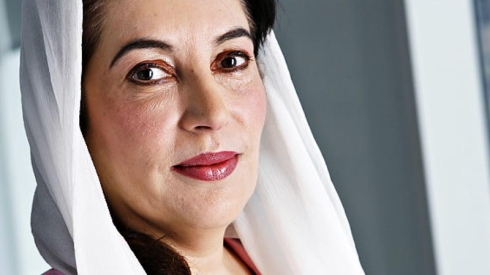
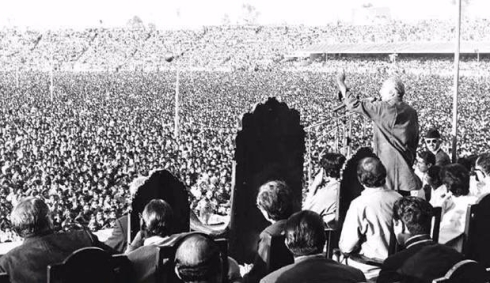
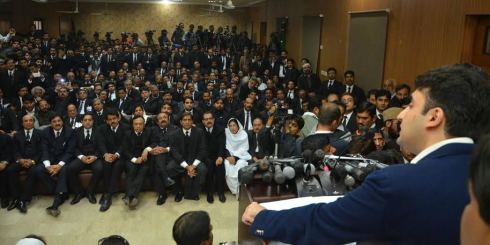 ‘Let us move on…’ Comes from a grandson standing in the hall of Lahore High Court that ordered his grandfather’s extra-judicial murder who gave this country its first unanimous constitution.
‘Let us move on…’ Comes from a grandson standing in the hall of Lahore High Court that ordered his grandfather’s extra-judicial murder who gave this country its first unanimous constitution.